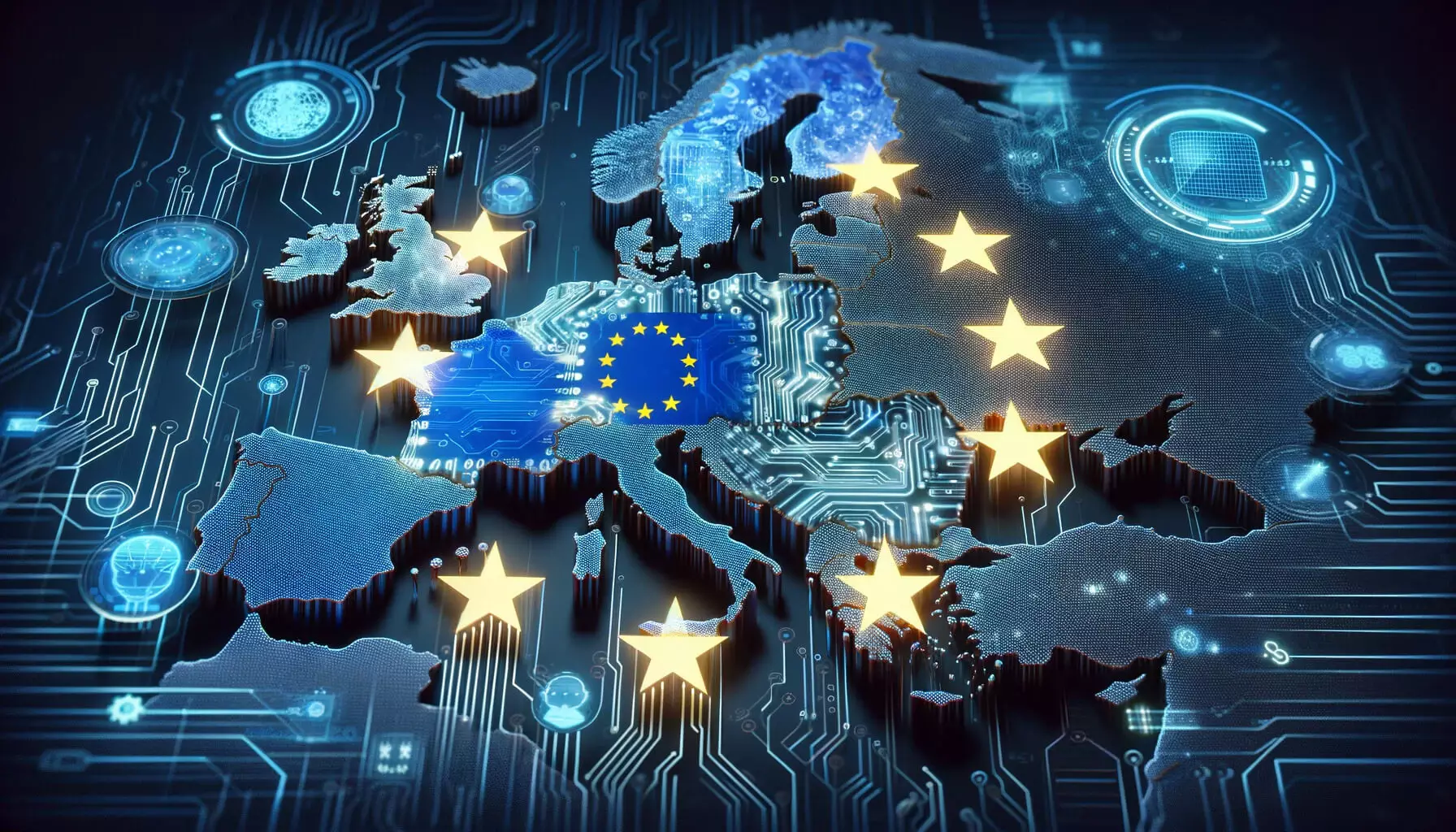The European Union (EU) has emerged as the frontrunner in the global race to regulate artificial intelligence (AI). After three days of negotiations, the European Council and the European Parliament have reached a provisional agreement on what is poised to become the world’s first comprehensive regulation of AI. This landmark agreement has been hailed as a “historical achievement” by Carme Artigas, the Spanish Secretary of State for digitalization and AI, who emphasized the delicate balance between fostering safe and trustworthy AI innovation and safeguarding the fundamental rights of EU citizens.
The draft legislation, known as the Artificial Intelligence Act and initially proposed by the European Commission in April 2021, adopts a risk-based approach to regulate AI systems. The severity of the rules imposed on an AI system will depend on the level of risk it poses. To determine this, the regulation will classify AIs into different categories, with those considered high-risk being subject to more stringent regulations.
The legislation introduces several obligations and requirements for high-risk AI systems:
Human Oversight
One of the key mandates of the AI Act is the inclusion of a human-centered approach. This entails establishing clear and effective human oversight mechanisms for high-risk AI systems. Human monitors will actively supervise and evaluate the operation of AI systems, ensuring they function as intended and taking responsibility for their decisions and actions. This emphasis on human involvement aims to address potential harms, unintended consequences, and potential biases inherent in AI systems.
Transparency and Explainability
Building trust and ensuring accountability are priorities when it comes to regulating AI. Developers of high-risk AI systems must provide transparent and accessible information about how their systems make decisions. This includes disclosing details about the underlying algorithms, training data, and potential biases that may influence the system’s outputs. Demystifying the inner workings of AI systems is crucial to instill confidence in users and prevent the ethical dilemmas associated with opaque technology.
Data Governance
Responsible data practices are emphasized in the AI Act to prevent discrimination, bias, and privacy violations. Developers must ensure the accuracy, completeness, and representativeness of the data used to train and operate high-risk AI systems. The principle of data minimization is vital, as it encourages collecting only the necessary information to avoid misuse or breaches. Additionally, individuals must have clear rights to access, rectify, and erase their data used in AI systems, empowering them to control their information and ensure its ethical use.
Risk Management
Proactive risk management is a critical requirement for high-risk AI systems. Developers must implement robust frameworks that systematically identify and mitigate potential harms, vulnerabilities, and unintended consequences of their systems. The regulation goes beyond mere compliance and outright bans certain AI systems that are deemed to have “unacceptable” risks. For example, the use of facial recognition AI in public areas is prohibited, with exceptions for law enforcement. The regulation also bans AIs that manipulate human behavior, employ social scoring systems, or exploit vulnerable groups.
Penalties and Safeguards
The AI Act includes penalties for violations of the regulations. Companies found in violation of the banned AI applications laws will face a penalty of 7% of their global revenue. Furthermore, failure to comply with the obligations and requirements can result in fines amounting to 3% of a company’s global revenue. However, the regulation also seeks to foster innovation by allowing the testing of innovative AI systems under real-world conditions, provided appropriate safeguards are in place.
While the EU has taken the lead in regulating AI, other countries such as the United States, the United Kingdom, and Japan are also working on their own AI legislation. The EU’s comprehensive approach to AI regulation could serve as a global standard for countries seeking to develop their own regulatory frameworks. By setting the precedent for responsible and transparent AI development, the EU paves the way for a global consensus on AI governance and ethics.
The European Union’s Artificial Intelligence Act represents a significant milestone in the regulation of AI. By striking a delicate balance between innovation and safeguarding fundamental rights, the EU is taking proactive steps to ensure the responsible and ethical deployment of AI systems. The risk-based approach, coupled with stringent obligations for high-risk AI systems, transparency requirements, and penalties for violations, reflect the EU’s commitment to building trust, accountability, and protecting the interests of its citizens. As the world becomes increasingly reliant on AI, the EU’s pioneering efforts may shape the future of AI regulation worldwide.

